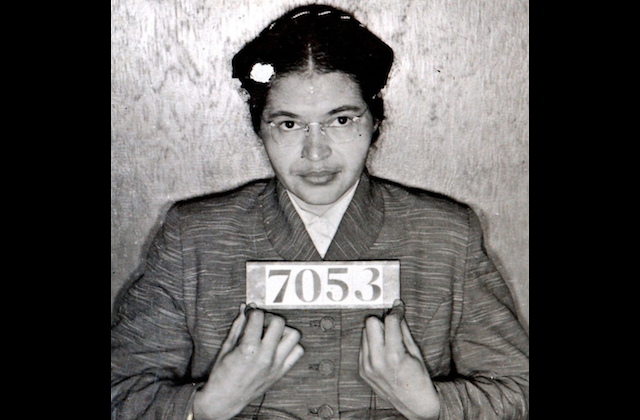62 Years Ago: Rosa Parks Refused to Give Up Her Bus Seat, Inspiring the Montgomery Bus Boycott

Rosa Parks’ name is trending on Twitter today (December 1) as users commemorate the 62nd anniversary of her most famous direct action: her refusal to give up a bus seat to a White passenger in Montgomery, Alabama.
62 years ago today, Rosa Parks stood up for what is right, what is fair, and what is just, by sitting down on a Montgomery city bus and refusing to give up her seat to a white passenger. Her actions took raw courage and helped ignite a movement. #goodtrouble pic.twitter.com/iMHemdVzzB
— John Lewis (@repjohnlewis) December 1, 2017
According to the Library of Congress, Parks’ nonviolent resistance landed her in jail and launched the Montgomery Bus Boycott. The campaign ended 381 days later, when the U.S. Supreme Court ruled in Browder v. Gayle to ban racial segregation on public transportation. This action remains her best-known effort in a prolific advocacy career that included seeking justice for Black sexual assault survivors like Recy Taylor and launching a still-thriving youth outreach institute in her name.
On this day in 1955, Rosa Parks sparked the Montgomery bus boycotts by refusing to give up her seat to a white man. Today we’re reminded of her legacy fighting for the protection of Black women from sexual assault and her calls for justice for all Black people. pic.twitter.com/u2KekR7OTQ
— BYP100 (@BYP_100) December 1, 2017
Cable network TV One marked the anniversary yesterday (November 30) with the release the first trailer for “Behind the Movement." According to Shadow and Act, the project follows Parks (Meta Golding, “Colony”) and other organizers through her action and the subsequent planning period before the boycott launched on December 5, 1955. The historical narrative film will debut on February 1.
Watch the trailer, which features Golding narrating Parks’ reflections on her choice to break segregation laws and stay in her seat.
